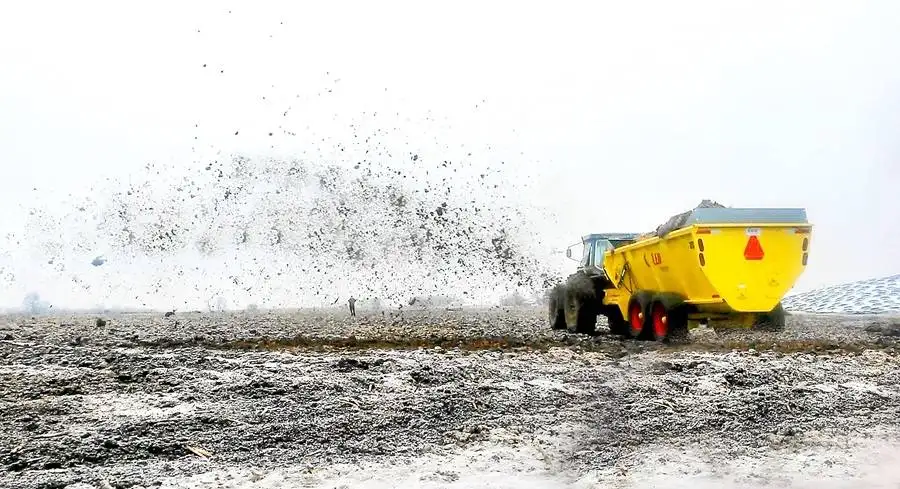**Combatting Heat Stress in Dairy Cattle: Essential Strategies for Optimal Health and Productivity**
Heat stress is a significant challenge in dairy cattle production, negatively impacting milk production, animal health, and farm efficiency. As we move into 2024, effective strategies are essential to combat heat stress and maintain herd health and productivity.
**Understanding Heat Stress in Dairy Cattle**
Heat stress occurs when the heat produced in a cow’s body exceeds its ability to dissipate it. This is influenced by environmental temperature and humidity (THI) and milk production. As THI increases, cows attempt to cool themselves through increased water intake, blood flow, and sweating. However, when THI exceeds 68, these mechanisms fail, leading to increased respiration rates and elevated body temperatures.
**Consequences of Heat Stress**
Heat stress has severe consequences, including:
* Reduced milk production
* Depressed milk fat and protein
* Impaired reproduction
* Increased susceptibility to metabolic diseases
* Lameness
* Death
**Critical Importance of Cooling**
Cooling is crucial to mitigate heat stress. Studies have shown that only 35% of the reduction in milk production during heat stress is due to reduced feed intake. The remainder is attributed to increased energy expenditure for cooling. Aggressive cooling measures, such as wetting and air movement, can nearly eliminate the effects of heat stress.
**Optimizing TMR Rations During Heat Stress**
Fine-tuning TMR rations is vital to minimize heat production and acidosis risk. Strategies include:
* **Increasing Ration Density:** Provides more nutrients per unit of dry matter consumed, reducing heat production.
* **Feeding High-Quality Forages:** Alfalfa has lower fermentation heat and higher buffering capacity.
* **Replacing Starch with Digestible Fiber:** Maintains energy levels while reducing acidosis risk.
* **Lowering Protein Solubility and Degradability:** Mitigates increased rumen ammonia levels and protein degradation.
* **Adding Yeast:** Improves rumen fermentation, reduces acidosis risk, and lowers body temperature.
* **Increasing Sodium Bicarbonate, Potassium, and Magnesium:** Buffers rumen pH, replenishes electrolytes, and balances magnesium levels.
* **Adding Zinc Methionine:** Supports hoof health and reduces lameness.
* **Considering Bypass Niacin and/or Biotin:** Supports thermo-regulation and hoof hardness.
**TMR Management Tips for Heat Stress**
Effective TMR management requires vigilance in:
* **Bunker Silo Management:** Prevent spoilage and feed cycling.
* **Batch Feeding Twice Per Day:** Reduce spoilage and acidosis risk.
* **Monitoring Particle Size and Mix Uniformity:** Ensure adequate fiber intake and minimize sorting.
* **Adding Water to Control Sorting:** Improve ration binding and reduce acidosis risk.
* **Feeding After Afternoon/Evening Milking:** Maximize dry matter intake during cooler hours.
* **Ensuring Constant Feed Availability:** Prevent binge eating and acidosis.
* **Pushing Up Feed Multiple Times Daily:** Reduce sorting and provide a consistent supply.
* **Clean Water Availability:** Provide ample water in multiple locations.
**Conclusion**
By implementing these strategies, dairy farmers can effectively combat heat stress in their herds. This includes environmental controls, strategic TMR adjustments, and vigilant management of feeding practices. Investing in effective cooling technologies is crucial for optimal health and productivity during the hottest months.
**Contact LEO Agriculture**
LEO Agriculture is a global manufacturer and distributor of high-quality feed mixers and manure spreaders. We offer a wide range of solutions to meet the specific needs of your dairy operation. Contact us today for a quotation, to become a distributor, or to ask any questions. Our team of experts is ready to assist you.
For more information, visit www.leo-ag.com
**Disclaimer**
This article was written by AI and the information provided may not be complete or accurate. Always consult a professional for advice.
**Trademarks**
If any trademarks have been used, they do not not manufacture, distribute or endorse these parts.
Key Words: Heat stress, Dairy cattle, THI, Cooling, TMR rations, Ration density, Forages, Fiber, Protein, Electrolytes, Zinc methionine, Bypass niacin, Biotin, TMR management, Bunker silo management, Batch feeding, Particle size, Water addition, Feed availability, Clean water, LEO Agriculture, Feed mixers, Manure spreaders, Vertical, TMR, Feed, Mixer, Manure, Spreader, LEO, Agriculture
If trademarks have been used in this AI article they do not belong to FMK and the represented company does not manufacture, distribute or endorse these parts.

